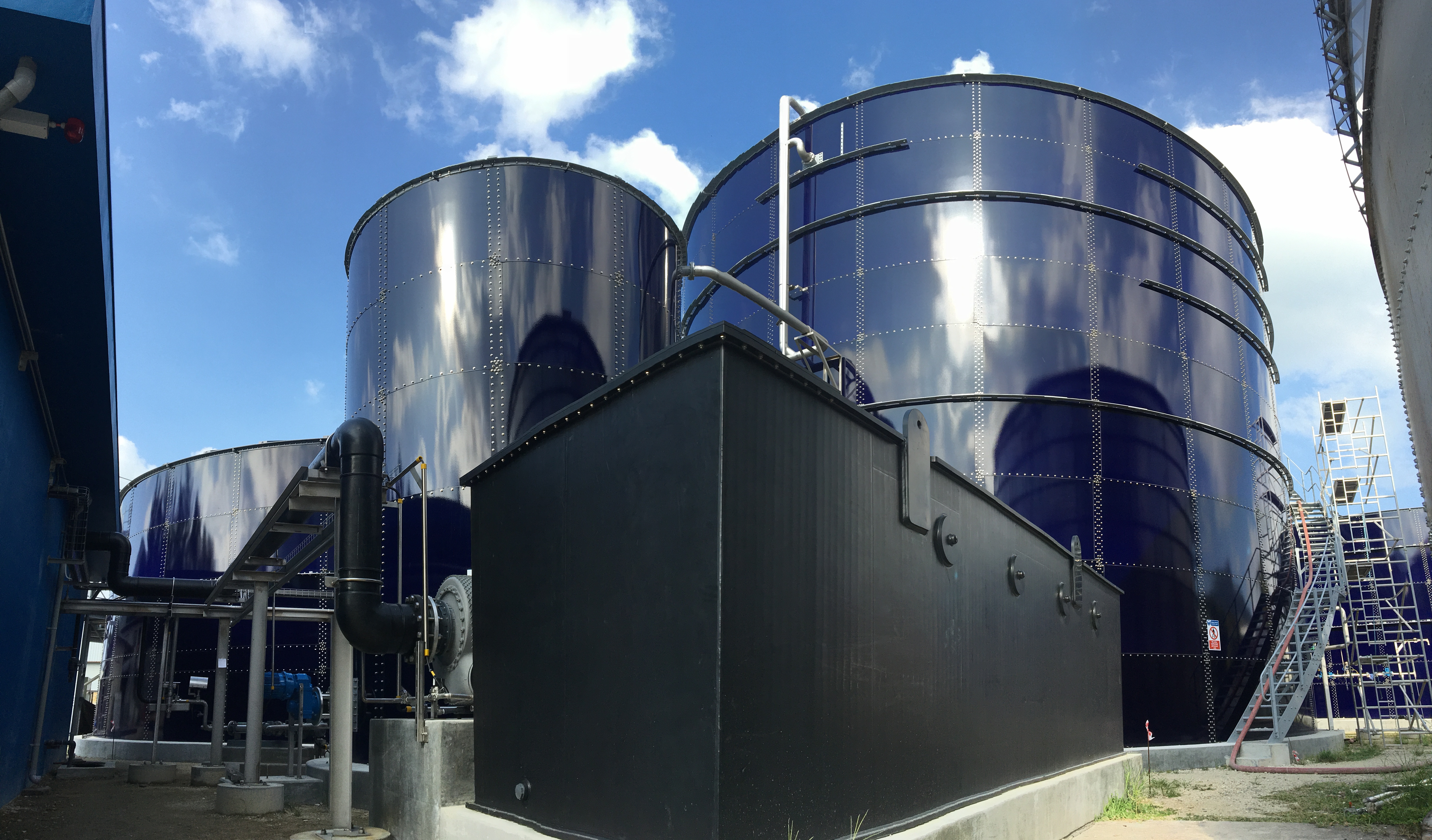An international exporter of seafood dedicated to top world standards of environmental protection and sustainability has introduced new wastewater treatment to its Seychelles manufacturing plant that will not only achieve outstanding effluent qualities but, depending on how it is utilized, can also provide biogas, which has the potential to replace fossil fuels.
Indian Ocean Tuna Ltd has installed one of the latest Global Water & Energy (GWE) aerobic and an aerobic digestion plants at its seafood processing operation in Victoria, capital of the Seychelles archipelago of 115 islands, which are renowned for their natural beauty and are home to UNESCO World heritage sites 1,600km off the coast of East Africa.
Global Water & Energy
GWE has more than 400 high efficiency wastewater treatment projects in 62 countries. These include an increasing number of bio gas reuse and organic waste-to-energy plants. GWE has recently re branded from Global Water Engineering to Global Water & Energy to reflect a growing focus on turning wastewater into green energy.
The Victoria processing plant of India Ocean Tuna – an operation of the Thai Union Group Public Company – produces 2,000 cubic meters a day of wastewater in its processing and canning operations. The new GWE plant is designed to remove over 95% of organic contaminants from the wastewater.
The new GWE plant, commissioned this year, uses treatment processes including its globally proven ANAMIXTM anaerobic waste digester to achieve outstanding discharge qualities, and convert a mixture of wastewater and sludge into biogas, which can later reduce the company’s dependence on fossil fuels and minimize their environmental impact.
The ANAMIX™ process
The ANAMIX™ process – which is designed to maximize the contact between the anaerobic biomass digestion process and the biological waste – comprises a completely mixed anaerobic reactor, especially suitable for the digestion of wastewater with significant fat, oil and grease (FOG) content – as is this case, waste streams from fish and seafood processing.
During the ANAMIX™ digestion process, anaerobic bacteria convert organic contamination in sludge and wastewater into biogas, which can be turned into methane and later utilized for energy production and used as fuel for electric power generators or to replace fossil fuels in steam boilers and heaters on the production site.
By extracting biogas (primarily methane) from the organic waste removed, the fish processing plant can save more than 2,000 kg/d of fuel oil, worth about $US1,000 per day, decreasing the fossil fuel dependency of the company, and reducing its environmental footprint. Such savings can amount to hundreds of thousands of dollars a year and achieve a rapid ROI for the wastewater treatment plant.
Benefits of the GWE technology
“With world seafood production now topping 170 million tons – both from fisheries and aquaculture – there is obviously great scope globally for GWE technologies such those adopted by Indian Ocean Tuna to deliver a more sustainable environmental outcome. This plant sets global benchmarks for environmental outcomes and commercial sustainability,” says GWE.
With its new wastewater treatment plant, Indian Ocean Tuna significantly reduces its impact on the surrounding water and grounds. Application of the anaerobic digester such as ANAMIX™ and mechanical dewatering by means of screw press contributes to significant reduction in disposal costs and lower landfills requirements for their solid waste.
Benefits of the GWE technology (which apply globally to food, beverage and any company with an organic waste stream) include:
Effective organic contamination removal from the wastewater stream before discharge minimizes the impact on the environment.
Up to 3,000 cubic meters a day of biogas generated can be utilized by Indian Ocean Tuna in many profitable ways, ranging from use in the company’s boiler and heat processes through to production of green electricity for company or community use.
An additional environmental benefit is the plant’s low space requirements for landfills, due to the advanced management of sludge by application of the ANAMIX™ digester. Mechanical sludge dewatering with a screw press process that allows high dry solids content and contributes to the significant reductions in disposal costs.
Environmental harmony
It is a significant contribution to the achievement of the company’s sustainability manifesto, in accord with Thai Union’s policy to act proactively against climate change and other adverse environmental impacts throughout its supply chain to ensure its performance surpasses world standards.
It is in environmental harmony with the public policy of the Seychelles, which recently published its first “State of the Environment Outlook” with a strong emphasis on responsible waste management.
“And not only is the plant installed by Indian Ocean Tuna an environmental boon for Seychelles, but also biogas-producing green energy plants such as this can help pay for themselves. So there is a strong business profitability case to support companies wishing to act in an environmentally responsible manner,” says GWE.
The processing and canning of fish, meat, fruits, vegetables with medium to high strength wastewater streams can be treated advantageously by means of various anaerobic processes. To learn more about how to efficiently manage industrial wastewater and reduce the environmental impact of your business contact GWE today [email protected].
For further information globally, please contact Monika Ostrega, Marketing and Communication Officer, Global Water & Energy, [email protected]
Addresses/contacts of the nearest GWE office are located at www.globalwe.com

Leave a Reply